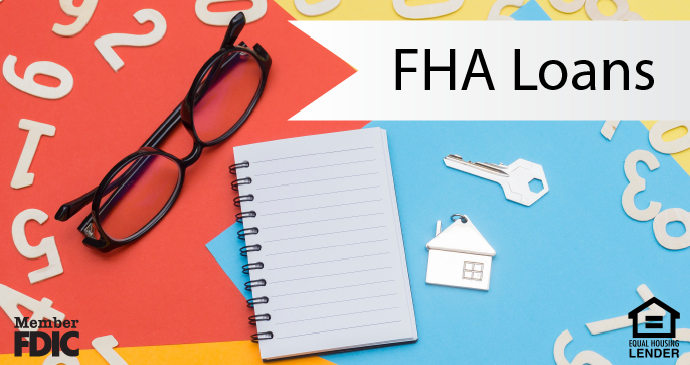Everything You Should Know About FHA Loans
Purchasing a home is an exciting and stressful time for many people. From searching for the perfect house to figuring out what financing options are available, there is a lot that goes into the process. Whether you're a first-time home buyer or simply looking to refinance your property, an FHA loan may be the right choice. Since all loan types vary, we want to make
FHA loans are easy for you to understand.
What Is an FHA Loan?
As the largest insurer of residential mortgages in the world, the Federal Housing Administration (FHA) offers loans on single-family and multi-family homes in the United States and its territories. FHA loans allow borrowers to finance homes with as little as 3.5% down and are a good option for first-time home buyers who may not have a large down payment. They are also insured by the Federal Housing Administration, which means qualifying can be a little easier than with conventional loans.
What Are the Requirements?
Although FHA provides mortgage insurance on loans made by FHA-approved lenders, a few requirements must be met to qualify for the loan. Some requirements include:
- Mortgage insurance
- Home must be the borrower's primary residence
- Steady income and proof of employment
What Items Are Needed?
The first step in qualifying for an FHA loan is to fill out a loan application and provide proof of your income, savings, and credit information. Supporting documents that may be required include:
- Driver's license & social security card
- Most recent month of pay stubs
- Two years of complete tax returns
- Two years of W-2, 1099, or other income statements
- Most recent three months of bank statements
- Credit information
- Contact information of your landlord (if applicable)
- Bankruptcy and discharge papers (if applicable)
If you own another property or you're refinancing your current home, you will also need to provide the following:
- A copy of the note & deed from the current loan
- A copy of your property tax bill
- Your homeowner's insurance policy
- A payment coupon for your current mortgage
- Rental agreements (if applicable)
What Are the Benefits of an FHA Loan?
Many people choose an FHA loan because they offer a wide range of advantages that are different from conventional loans. Benefits include:
- Market interest rates
- Low down payments
- Lower mortgage insurance premiums
- Flexible underwriting criteria
What Can Make Loan Approval Difficult?
As with any other type of loan, your credit history will play a role in determining your eligibility for an FHA loan. Although having a good track record of timely payments can help make you eligible for an FHA loan, there are a few things that can negatively affect your eligibility.
- No credit history
- Bankruptcy within the last two years
- Recent late payments
- Past foreclosure
- Collections or judgments
- Federal debt
What Happens at Closing?
Once you've negotiated the final cost of a home with the seller and your loan is approved to close on the predetermined date, you will need to provide some additional items that include:
- Identification
- Title insurance policy
- Homeowner's insurance policy
- Closing funds in the form of a cashier's check or electronic wire
Wow, that's a lot of information! But don't worry, our mortgage lenders are here to walk you through the process step by step and ensure your journey to homeownership is stress-free.
Ready to take the next step? Simply fill out this contact form and one of our experienced mortgage lenders will be in touch!
Lincoln Savings Bank, Member FDIC, Equal Housing Lender




